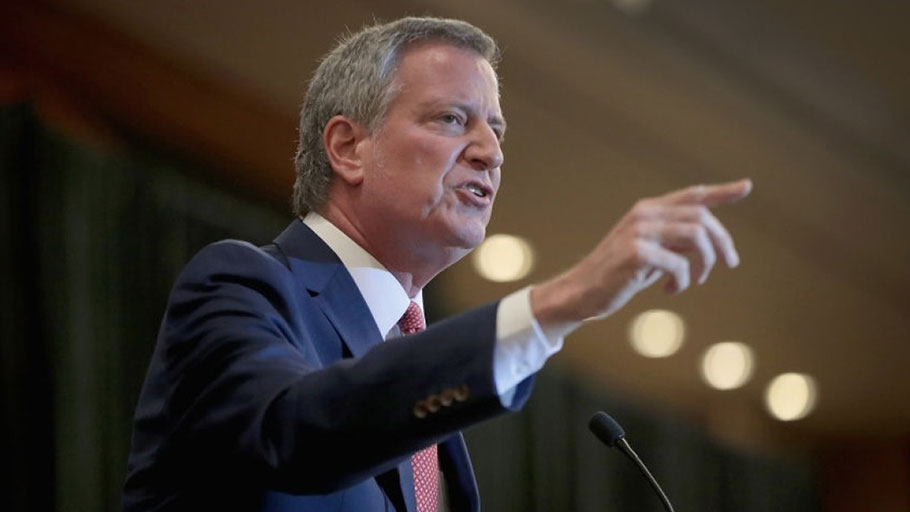The issue of reparations is one that Democrats have increasingly raised, though it continues to divide liberal leaders. Image by Scott Olson, Getty Images.
By Madina Touré —
Mayor Bill de Blasio won’t say if he supports reparations for black Americans affected by slavery, but he does support a commission to study the issue.
As part of his longshot presidential campaign, the mayor this week attended the 2019 Muslim Collective for Equitable Democracy Conference in Washington, D.C., and was asked about reparations for the descendants of black slaves — a long-debated concept that has gained some traction on the 2020 campaign trail.
He reiterated a stance he’s taken before, saying, “I think the commission concept is right — let’s have a national discussion, let’s look at this history deeply in an open manner.”
But asked directly if he believes that black people deserve reparations and what form they would take, de Blasio demurred.
“I believe — and it’s just what I feel in my heart — I believe the only way to even begin to have the proper conversation and the proper examination is to form a commission that can really be respected and do it from scratch,” he said.
House Democratic leaders last month said they would hold a floor vote on a bill — drafted by Rep. Sheila Jackson Lee (D-Texas) — to create a commission that would study and undertake reparations proposals for the descendants of black slaves.
In April, de Blasio said the reparations issue “has to be taken seriously” calling for a public commission and determining how to address the problem “once and for all.” In May, he again said he would establish a reparations commission to examine the issue during a visit to the South Carolina Democratic Party Black Caucus.
But de Blasio argues the U.S. needs a “program of actual redistribution” of wealth, calling for a larger discussion about income inequality and oppression of other groups such as Latinos, Native Americans, Asians and women.
The issue of reparations is one that Democrats have increasingly raised, though it continues to divide liberal leaders.
Sen. Kamala Harris (D-Calif.) said she does support some form of reparations as does former Housing and Urban Development Secretary Julián Castro.
Sens. Elizabeth Warren (D-Mass.), Cory Booker (D-N.J.), Kirsten Gillibrand (D-N.Y.) and former Rep. Beto O’Rourke have expressed support for Rep. Jackson Lee’s proposal. Booker introduced his own bill as a companion to Jackson Lee’s bill.
Sen. Bernie Sanders (I-Vt.) opposes reparations for slavery but has also expressed support for Jackson Lee’s bill.
In June, former Vice President Joe Biden said he “has not endorsed a specific bill” on reparations. His old boss, President Barack Obama, also opposed reparations while in office.















